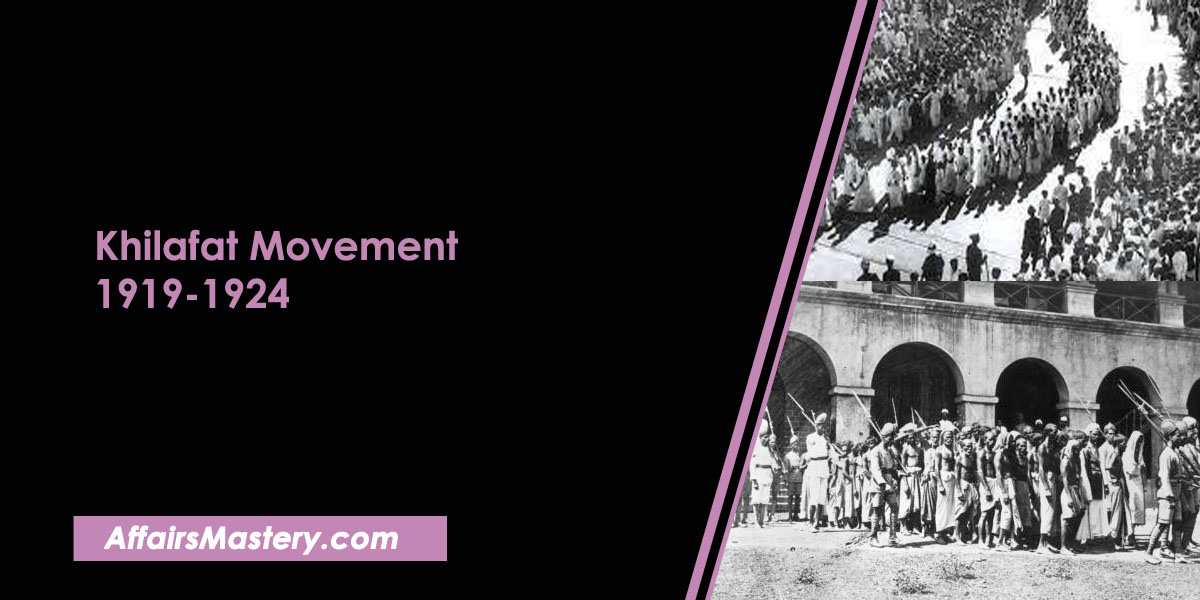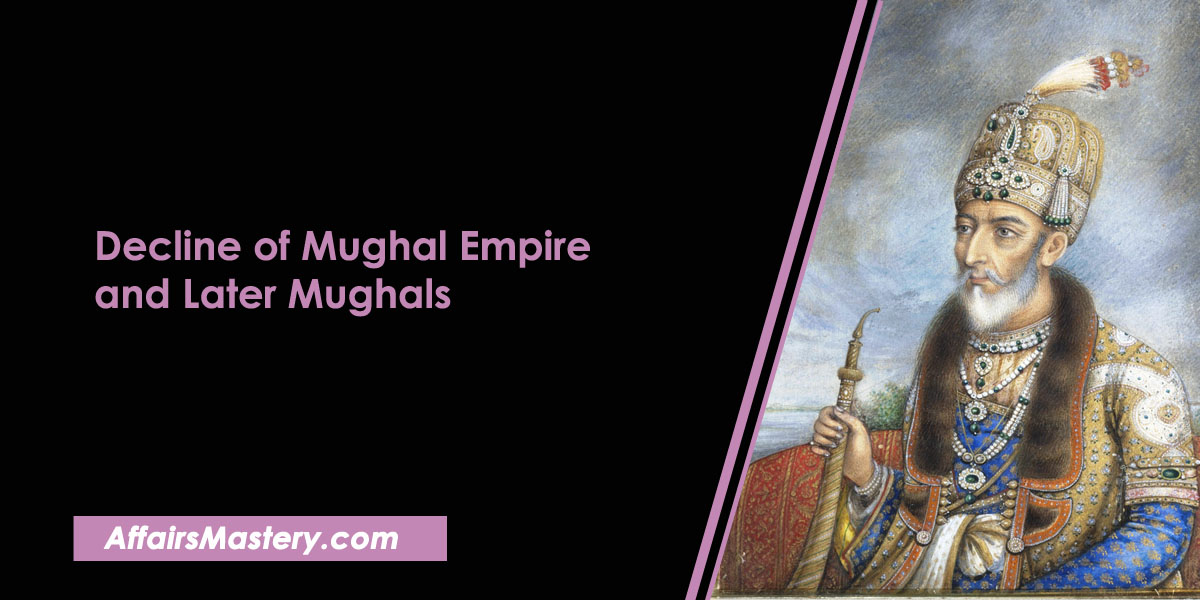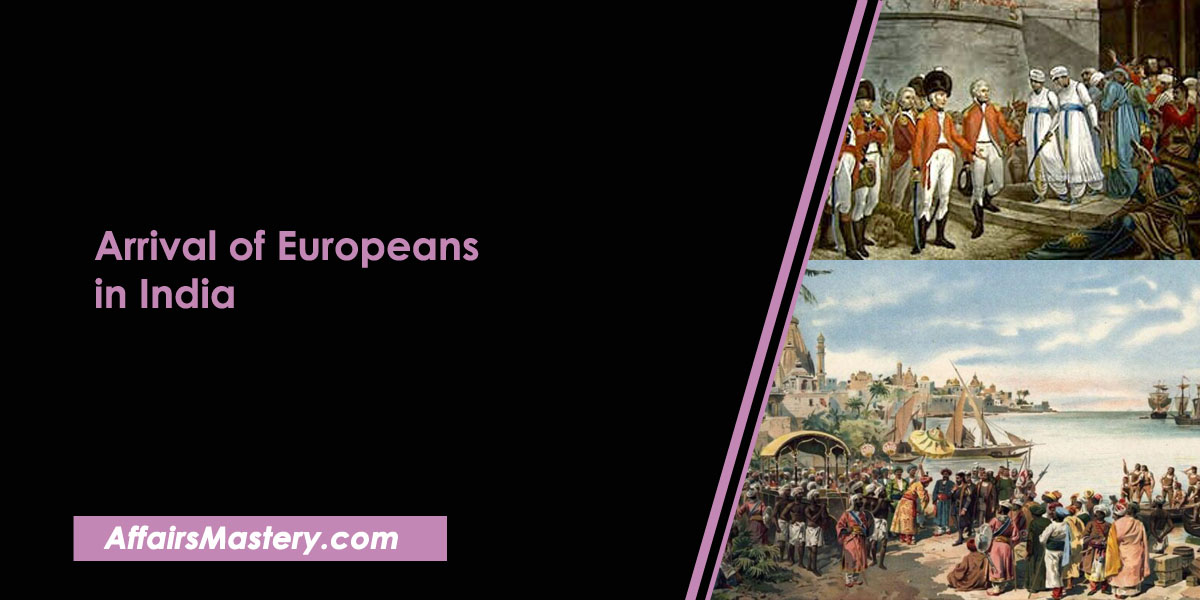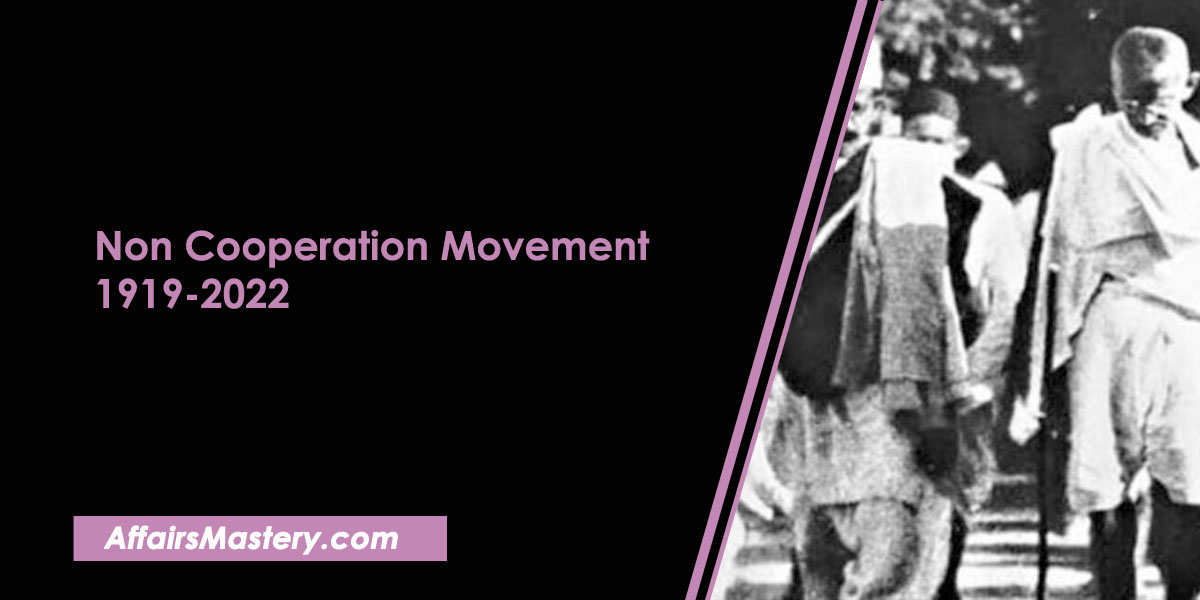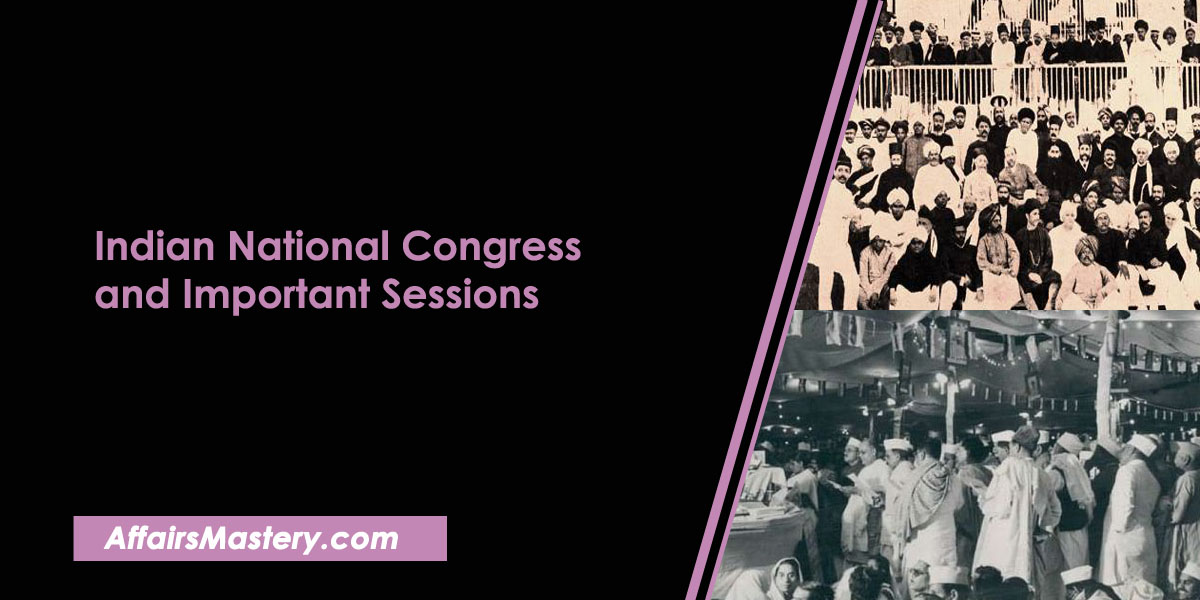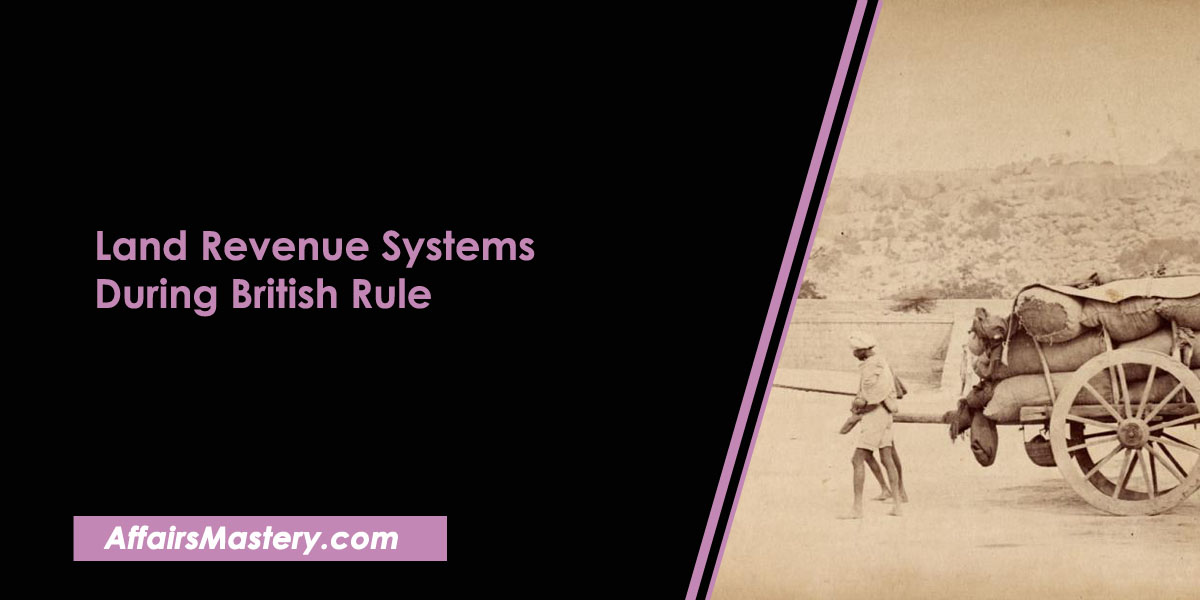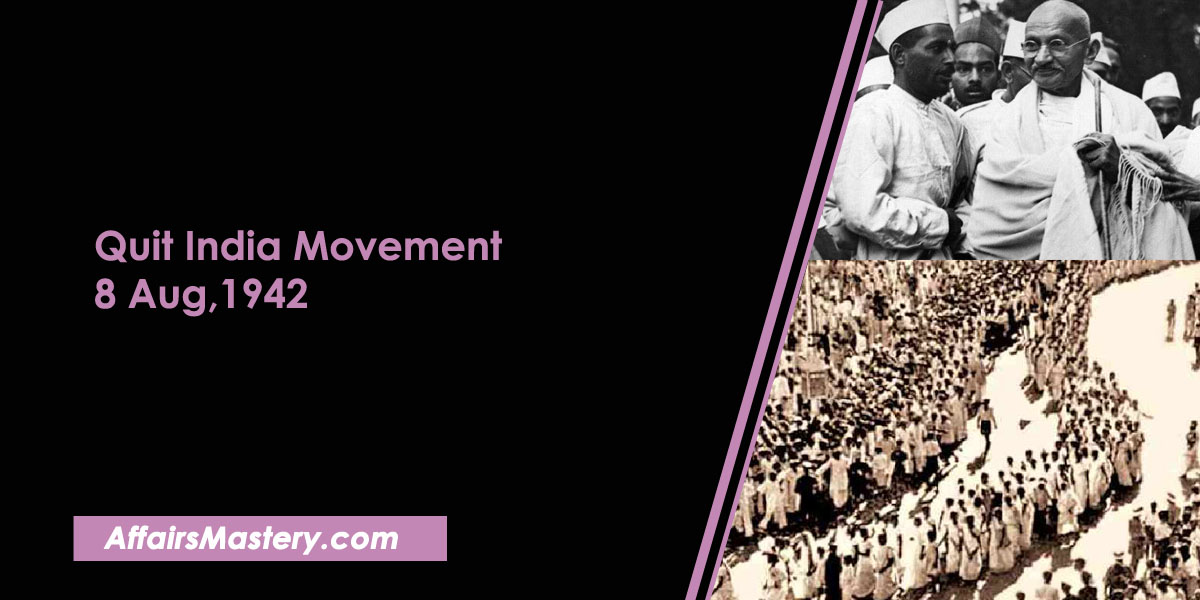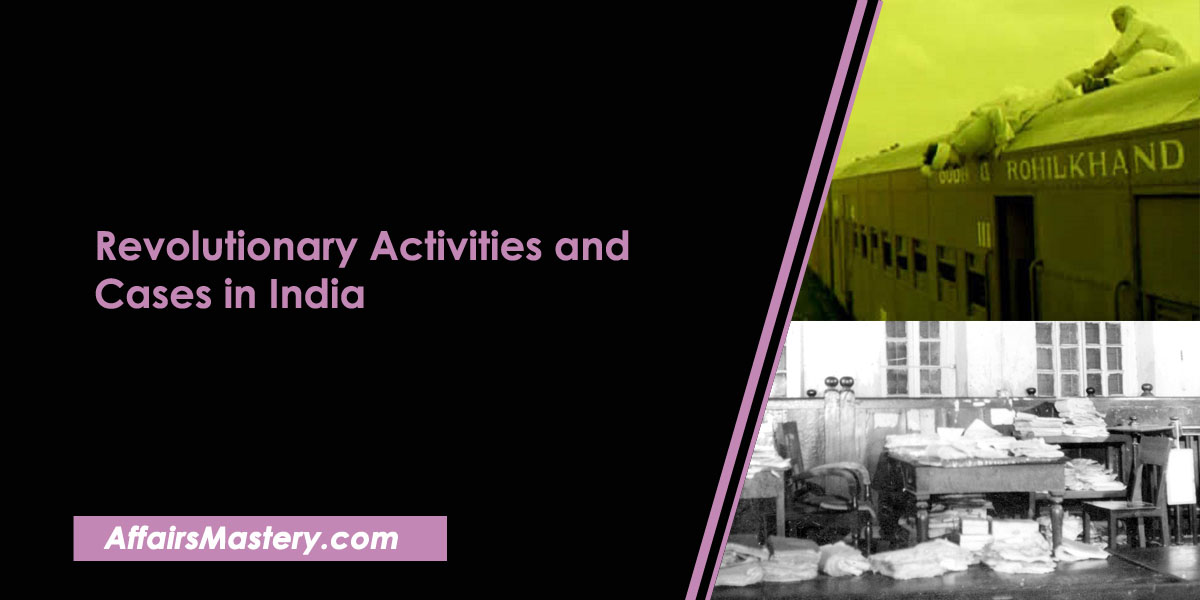Khilafat Movement (1919-1924) – Important Short Notes for exams
Khilafat Movement (1919-1924). What was Khilafat Movement? After the First World War, the Ottoman Empire was divided and Turkey dismembered. This caused great distress to Muslims who saw it as an affront to their beloved Khalifa. The Ali brothers – Shaukat Ali and Mohammad Ali – were particularly angered by this decision which led them to become active in politics with a mission of restoring power back into the hands of Muslim rulers ans Started Khilafat Movement against Britishers.
Important Short note for various exams. From the perspective of an examination like Civil Services, State exams, SSC, Banking, Railways and any other One Day exam, all the necessary facts and information are listed below.
About
- The British had promised a respectable treatment to the Caliph of the Ottoman Turkish Empire to avoid hurting the sentiments of Muslims during the First World War as the Caliph was considered to be the religious and temporal head of the Muslims.
- However, as the war came to an end, Muslims across the world, including India were infuriated by the harsh treatment meted out to the Caliph under the Treaty of Sevres(1920).
- During this time, Gandhi had joined Indian National Movement and Lucknow Pact between Congress and Muslim League had been signed in 1916, which had brought the two organizations closer for the first time.
- Gandhi saw the moment as a perfect chance to strengthen and solidify Hindu-Muslim unity, which was an important part of his mission for peace
- A Khilafat Committee was formed in October 1919, under the leadership of Ali brothers – Shaukat Ali and Muhammad Ali, Maulana Azad, Ajmal Khan and Hasrat Mohani, to force the British Government to change its attitude towards Turkey.
- To meet the below mentioned demands, Khilafat Movement was launched and on August 1, 1920, an All-India General Strike was observed.
- The special Calcutta session of the Congress held in September 1920 was presided over by Lala Lajpat Rai which passed the Non-Cooperation resolution and decided to include the Khilafat issue as one of the demands of the Non-Cooperation Movement.
- As a result of this, the Non-Cooperation Movement and Khilafat Movement became intertwined to form one unified movement.
Demands of the movement
- Control of the Turkish Sultan or the Khalifa over all the Muslim sacred places should be retained.
- The Khalifa/Caliph should be left with sufficient territories after territorial arrangements to enable him to defend the Islamic faith.
- The Arab lands known as the Zyariat-ul-Arab i.e. Arabia, Syria, Iraq, Palestine, etc. must remain under Muslim sovereignty.
Impact of the movement
- Urban Muslims were drawn to the Indian national movement.
- The Hindu-Muslim unity was greatly strengthened due to this movement and this was clearly seen in the large number of people who took part in the Non-cooperation Movement, which showed how much support there was for this cause.
- Nationalist sentiments had a profound effect on every segment of the population, including women, traders, urban poor people, students and artisans. It politicized them all in some way or another by creating an atmosphere where they could express their views more freely than before.
If you find our content helpful and interesting, please consider joining us on Telegram @affairsmastery_official to show your support. We would really appreciate it!
Related articles
- Important Battles in Indian History
- Important treaties in Indian history
- List of Foreign Travellers who came to India
- List of Governor General of India and Viceroy of India
- Robert Clive – Important Short Notes for Exams
- Warren Hastings – Important Short Notes for Exams
- Lord William Bentinck – Important Short Notes for Exams
- Lord Canning – Important Short Notes for Exams
- Lord Mountbatten – Important Short Notes for Exams
- C. Rajagopalachari – Important Short Notes for Exams
- Lord Wavell – Important Short Notes for Exams
- Lord Linlithgow – Important Short Notes for Exams
- Lord Willingdon – Important Short Notes for Exams
- Non Cooperation Movement (1919-1922)
- Important Personalities related to Social Movements of India
- List of Important Personalities of Indian Freedom Struggle
- List of Important Books on Revolt of 1857 and their Author
- Important Leaders of 1857 Revolt and their places
- Constituent Assembly of India and its Composition: Important Short Notes
- Important Tribal Movements in India
- Direct Action Day 1946: Important Short Notes for Exams
- Interim Government of India, 1946 and its members
- Important Socio Religious Reform Movements in India – Short Notes
- Lucknow Pact, 1916 – About, Features, Outcome (Important Short Notes)
- C R Formula or Rajaji Formula, 1944 – About, Main Points (Important Short Notes)
- Wavell Plan, 1945 – About, Main Points (Important Short Notes)
